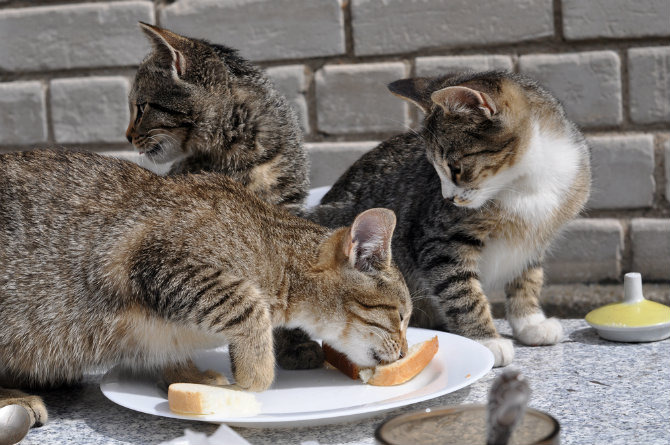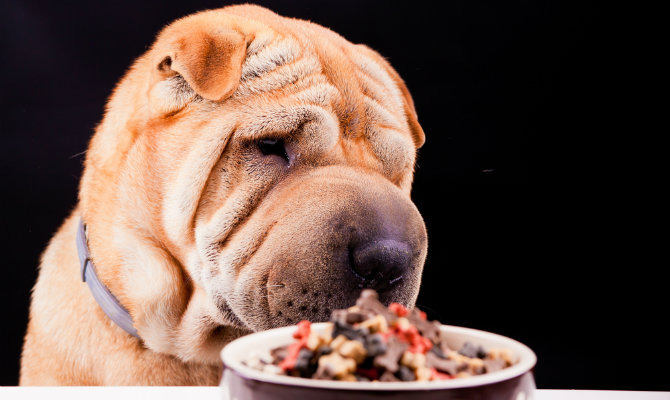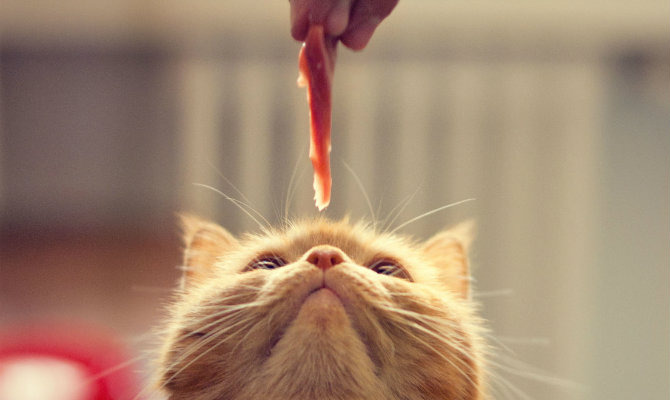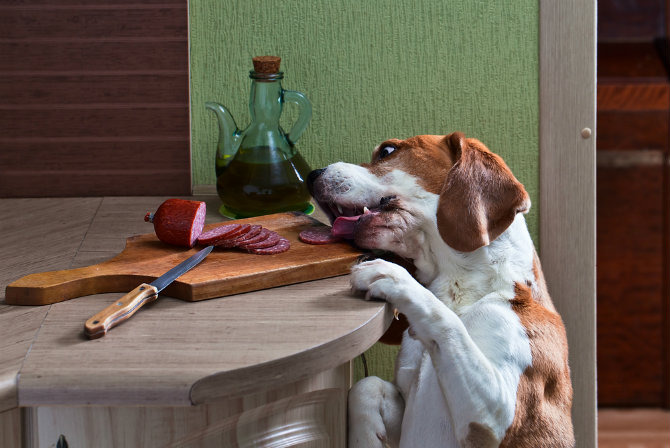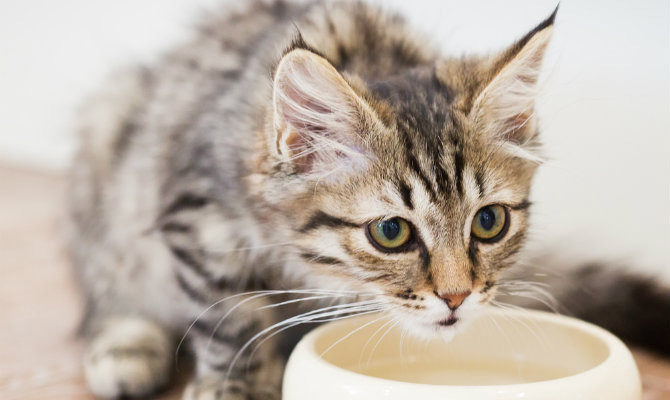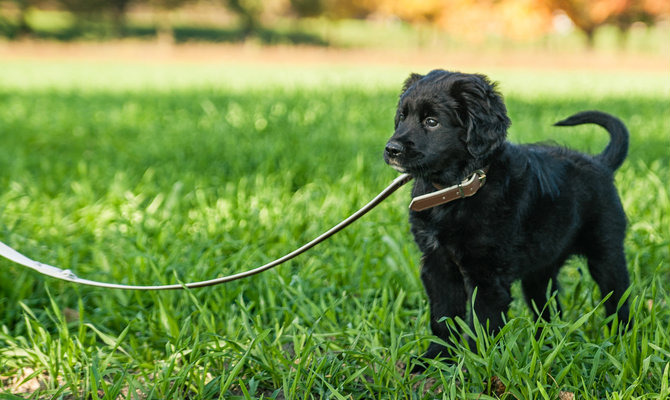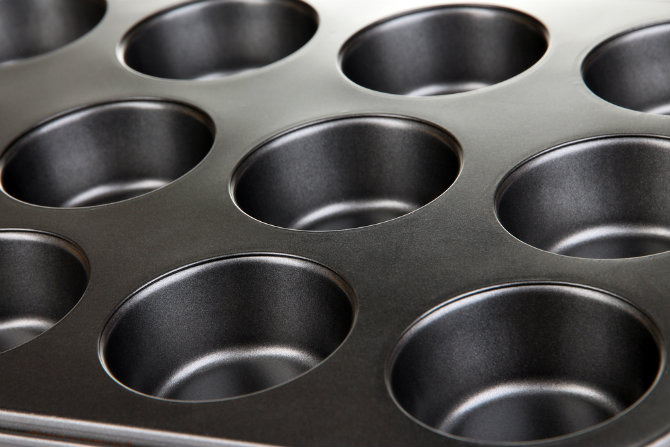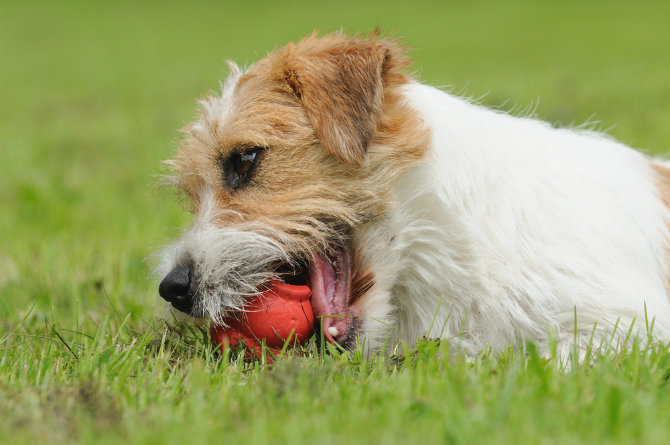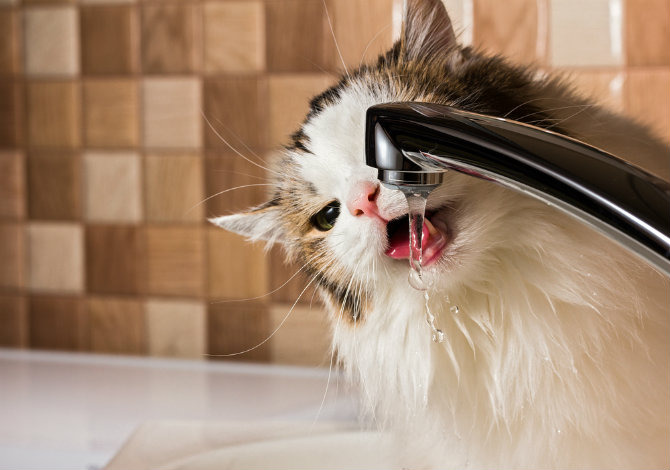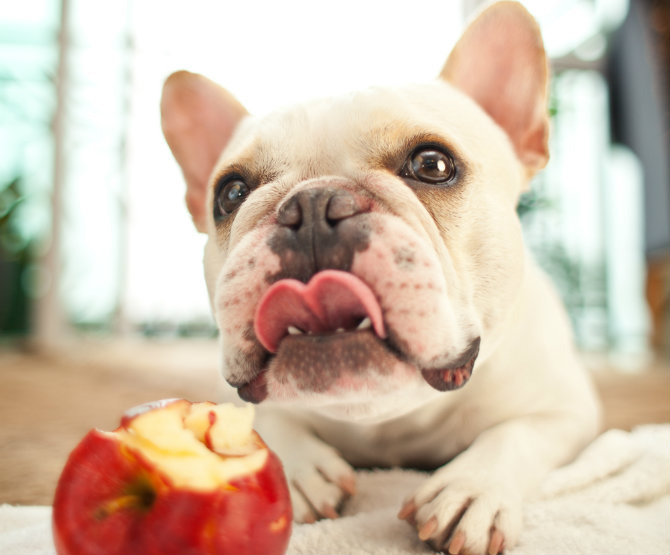Diet Tips For Your Pudgy Puppy Or Fat Cat
No matter the assessment of your pet's health, there are things you can do at home to get their little bodies back on track. Try these vet- and trainer-approved tricks to make sure your pudgy puppies or fat cats are the healthiest they can be!
For Cats: Cut the Carbs
"Switch to lower carbohydrate foods," instructs Dr. Katherine van Ekert, a veterinarian at VetPronto. "Cats are obligate carnivores and, ideally, should not eat any carbohydrates, so pay special attention to labels. Also, small amounts of tuna, chicken, and meat are OK, but should be supplemented with cat food, too."
For Dogs: Cut the Excess Food
"Reduce the amount of dog food in Fido's bowl," advises Amy Robinson, dog trainer creator of the dog training program Drool School. Read the dog food label for recommended amounts and reduce by 15 percent for small dogs and 20 percent for large dogs.
For Cats: Don’t Let Them Eat for Comfort
You cat may be an emotional eater! Luckily, there are steps you can take to improve your furry friend's relationship with food. "Engage the cat in play," advises Salley E. Bahner, a writer and feline behavior consultant. "Cats may look for food as a way of seeking attention."
For Dogs: Ditch the Table Food
"No human food from the table," Robinson declares. "Even just a bite will lead to more."
For Cats: Make Bone Broth
"Homemade broth, especially bone broth, is a great tool to get your cat started eating real food," counsels Dr. Cathy Alinovi, veterinarian at Healthy Pawsibilities, who encourages clients to explore dietary options for their pets beyond packaged food. "Bone broth is made by boiling bones in water that has one or two tablespoons of cider vinegar added to it."
For Dogs: Go For a Walk
"Take one leash walk per day, every day, for at least 20 minutes," suggests Robinson. "This helps melt off fat in a hurry. Hot out? Make that walk 15 minutes and toss a ball down your hallway 10 times." Plus, you'll get in a little bit of extra exercise, too — not to mention quality time with your pup!
For Cats: Use a Muffin Tin
Cats always enjoy a challenge, so van Ekert suggests making mealtime fun as a way to slow them down and prevent overeating. "Pace the rate at which they eat by dividing their portions in a muffin tin, so they have to work a little harder to eat out of each section," she says.
For Dogs: Slow it Down
Nutritionists often advise adults to slow down when eating to allow their brains time to register the fact that they are full. Dogs, unfortunately, do not have the same comprehensive capabilities, so you need to use some sneaky strategies to get them to slow down. "Feed their meals in treat toys or Kongs [non-toxic hollow rubber toys]," suggests van Ekert. "It'll slow down the rate at which they eat."
For Cats: Watch Their Water
Your cat may be in need of hydration. "Switch from kibble to wet food," advises van Ekert. "Wet food better mimics cats' natural diets and provides water — which is important, because cats can be notoriously bad drinkers."
For Dogs: Snack Smart
Just like humans, it's fine for dogs to snack — we just have to reach for the right stuff. "Make up for reduced food with smart snacking," says Robinson. "Give your dog a slice of apple or carrot to satisfy the midday growling tummy."

